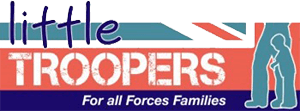I promised you a second blog around schooling and I thought this time it was really important to chat about boarding school. It is well documented that military families can receive subsidised boarding school fees but what does this actually mean? Is it an option for many families?
Personally, for my daughter we did discuss it at one point. Madison was about eight when I had a really full-on job that meant I had to travel internationally a lot while Tony was also deploying frequently. Ultimately Madison loves being at home and she wasn’t keen on the idea and therefore we didn’t explore it any further.
It has meant many more schools, friendships and changes for Madison but it also meant she remained at home with us and moved as we did as a family unit. We were her consistency.
We have lots of friends who did utilise the military boarding school allowance and their children have been very happy. It really is what works for your family, we are all different, our children are all different but options are important.
~~~
I asked Diane Weir who works for Anderson Education to help dispel some of the myths around military children and boarding school, so I could pass on the facts. Anderson Education is an organisation that can help military families find the best boarding school for their requirements and it’s a free service.
I found all of this so interesting and really felt I wanted to make this information available to you, in a really easy to read way so it can be one of your options and you can feel informed. My biggest advice is ask your child first and foremost, my daughter even now at 18 is such a homebody and is home from uni most weekends, boarding school would have just not suited her. Others totally thrive in the environment.
~~~
Diane, tell me a little about yourself, your military journey and your Little Troopers and school.
I became part of a military family 23 years ago when I married my husband who serves with the Army. Honestly, I thought it was going to be a short-term thing – the Forces bit, not the marriage! I am from Northern Ireland so grew up feeling familiar with the sight of the Armed Forces, I had no idea of what the lifestyle involved.
My Little Troopers (all boys) are now 19, 17 and 12 and had they not gone to boarding school they would have attended a staggering 23 schools between them. My eldest suggested boarding school as an option as he was on school number 6, he was tired being the new boy and found it really sad leaving friendships behind. I think because we are a small family unit with no extended family and often with no long-term friends nearby, he channelled a great deal of energy into friendships and craved stability. We considered changing our lifestyle by living unaccompanied in an effort to gain more stability, but a looming overseas posting meant there was going to be even less time as a family unit. My eldest started to board aged 11 with his brothers following in his footsteps at ages 10 and 9. They have been and continue to be absolute troopers, and I am so proud of all three, adapting to constant changes. Sometimes this has meant leaving one house to return to school and come back to a completely different one, and my husband and I do our best to make their bedrooms as similar as possible to make them feel at ‘home’. I do often feel very guilty that we have not provided them with a consistent environment with extended family and long-term friends nearby that both my husband and I experienced as children. The main catalyst for our deciding that boarding was our family’s best option was the opportunity for my children to forge lasting friendships and have more constants in their life.
I started working in this role at Anderson Education 18 months ago, helping military families who are considering boarding school. I wish I had been aware such services existed when we started searching. With each introduction to a new family, I always make a point to mention that boarding might not be what they end up choosing, but knowing as much as you can about it and having options is really useful, especially in this ever-changing environment.
I always think many in the military community think boarding school isn’t an option for them because we never fully chat about the exact specifics of it. It may well be an option for people without them knowing.
A boarding education remains a popular option for forces families as it can provide stability of education which is important academically and socially. Many families who may not have experienced a boarding education may have many preconceived ideas about boarding school, the types of families who use them, and their own extended families may have a negative opinion of them, which can be off-putting. This was certainly my experience, I felt I might not fit in as a parent and it might make my children have a very stuffy, privileged view of the world, which has absolutely not been the case. Schools are as individual as each child and it is important to find the right environment where your son or daughter can achieve their academic potential, feel ‘at home’ and above all have fun!
Is the military boarding school allowance available to everyone in the military community?
The military allowance which gets abbreviated to CEA (Continuity of Education Allowance) is available to those families who are mobile due to the serving person’s job. As the title suggests it exists to offer children who are part of a mobile family the ability to have continuity of their education by attending a boarding school. As the school fees are substantial the allowance affords those mobile families the option of choosing a boarding school.
If families are not sure if they are eligible, they should contact CEAS the Children’s Education Advisory Service [email protected] and also have a read of the JSP 752.
How does it work? Is the allowance paid to the family or school?
Those eligible families will have their CEA paid directly into their bank account and they are expected to pay the school bills using this money and then provide the MOD with a receipt of the invoice.
Do all boarding schools cost the same?
There are a range of school fees depending on what type of school you choose. For example there are State and Independent boarding schools. State boarding tends to cost much less than the independent sector as you are mostly paying for the boarding element, whereas with the independent schools you pay for everything. Also cost can vary depending on the age range of your children – with junior school costing less than senior school. Many of the Independent schools will offer an additional discount to forces families often on top of CEA and to those families not eligible for CEA. Some may only expect parents to pay 10% of the boarding fees which is the minimum stipulated by the MOD for Independent school, it’s 8% minimum contribution for State schools. Do be aware that there are extra costs to consider on top of boarding fees. Schools are very transparent with costs, and they will be expecting you to ask about these so please don’t be shy. Remember that as a cohort Forces families are very well respected and welcomed by schools.
Are some boarding schools more military child centred?
Some schools will have tailored events/clubs/support groups for military children but what the majority of these schools do so well is provide top-quality pastoral care to all children, regardless of their family circumstances. It really depends on what you as a family want from a school. Personally, we wanted the school to feel as ‘normal’ as possible where my boys would meet a wide range of people from a wide range of backgrounds, showing them there was life outside of our military family bubble.
Would we pay monthly or termly?
School bills are issued termly so you can expect three bills per year. Many schools however do have the option allowing you to join schemes where you can opt to pay a monthly amount instead of 3 larger amounts. As a family we have an additional bank account specifically for school fees. We pay in a monthly amount by direct debit with the aim of saving more than we know the bill will be. This gives us a bit of wiggle room for additional items such as if the children need some new uniform, have found a new hobby (which may not be included in the fees), or we know there is a school trip planned for the future. Some trips are included in the fees others are not. The school will be open about what is included and what is not.
There is also the possibility that your child may be awarded a bursary or scholarship. If your child is particularly academic or gifted in music and or sport, you can ask prior to application if they might be considered for this. These bursaries and scholarships are often granted at key stages such as entry to senior school in year 7 & 9 and sixth form, year 12, and may take the form of additional fee reductions or extra lessons in subjects such as music, at no additional cost.
Something to remember if you are starting out on your boarding school path is that you will be asked to pay a registration fee (non-refundable) for a school to process your child’s application. This is once you have narrowed down your search and have found what you believe to be the best fit. These range from £50/£100, and in some cases slightly more. Once the school has offered your child a place you will be expected to pay an acceptance deposit. The amount charged also ranges from school to school but expect to pay anything form £500 upwards, often as much as £1,500. This shows the school your commitment on acceptance of the place. Deposits are refundable after all outstanding invoices are paid at the end of your child’s last school term.
How much as an example might it cost a month?
Going back to my points earlier this depends on whether you have chosen a State or Independent Boarding school, what age your child is (as junior school is less expensive than senior school) and what, if any, additional discount the schools offers onto top of CEA. It really does depend on so many factors and is hard to give specific examples. The difference can be as extreme as costing from £250 a month to £2,000.
If you are eligible for CEA, you receive a set amount regardless of which school you end up choosing. It is up to you as a family to pay the difference so do your homework and there will be no surprises later.
What age can a child start boarding from?
Age 7 (year 3) is usually the earliest a child can start to board but if they are joining siblings and depending on the child, in some cases it can be from age 6. Some families will choose to wait until the child is making a natural transition from junior to senior school and a popular age to start is aged 11 (year 7). If your child has attended a prep school, they will start senior school at age 13 (year 9). Often the importance of stability at key stages of education means families decide boarding is the best option for their child and children can join at year 10 which is the beginning of their GCSE studies. Likewise, opting to board from year 12, the beginning of A Level and IB studies is also an option.
Are some costs not included and added extras?
Things which can be additional costs can include but are not limited to:
- Learning support (some specialist schools will include this in the fees).
- Exam fees.
- Certain additional music lessons.
- Horse riding lessons.
- New uniform.
- Some school trips (some local trips are often included in the fees).
- Stationary.
- School shop purchases (such as sweets, toiletries).
Most schools do their best to make fees as inclusive as possible.
Can my child come home every weekend?
There are some circumstances when children can go home every weekend. CEAS are the experts and will provide you with the rules surrounding CEA and weekly boarding. There is often lots of fun at weekends and many friendships deepen by spending more time in each-others company. The very fact that you might be eligible for CEA means you are mobile and therefore might not be posted anywhere close to the school you have chosen, ruling out weekly boarding. Do ensure the schools you are considering can cater to your family’s needs and provide a weekend full of activities. Choosing a school with a busy weekend program can help alleviate homesickness as the children are really busy and have less time to dwell on missing home. Many schools have lessons on a Saturday morning, something my children got to grips with very early on. This in turn means they cover the curriculum in a shorter time frame and many boarding schools will have longer school holidays as a result.
If you want to find out more you can contact Diane at Anderson Education [email protected]
The Little Troopers at School programme is available to all independent and state schools and academies.





